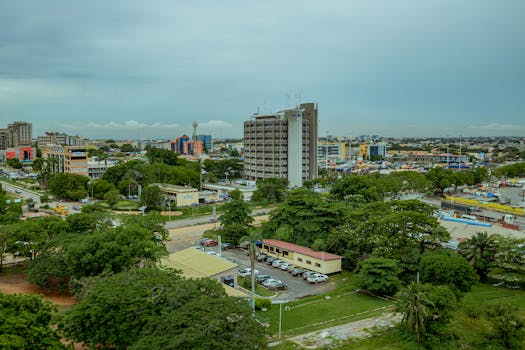Fiber Optics in Africa: Innovations Driving Economic Growth
Fiber Optics in Africa is revolutionizing the way businesses and individuals communicate, access information, and conduct transactions. The adoption of fiber optics in Africa is transforming the continent’s economy, driving growth and innovation in various sectors. With its high-speed internet connectivity, fiber optics is enabling African countries to participate in the global digital economy, creating new opportunities for economic growth and development.
The use of fiber optics in Africa is becoming increasingly widespread, with many countries investing heavily in the development of fiber optic infrastructure. This investment is driven by the need for faster, more reliable, and more affordable internet connectivity, which is essential for economic growth and development. In this article, we will explore the current state of fiber optics in Africa, its impact on economic growth, and the innovations driving this growth.
Current State of Fiber Optics in Africa

The current state of fiber optics in Africa is characterized by rapid growth and expansion. Many African countries have made significant investments in fiber optic infrastructure, with some countries having already achieved significant coverage. For example, countries such as South Africa, Nigeria, and Kenya have extensive fiber optic networks, with many other countries following suit. The growth of fiber optics in Africa is driven by the increasing demand for high-speed internet connectivity, which is essential for economic growth and development.
According to a report by the International Telecommunication Union (ITU), the number of fiber optic subscriptions in Africa has been increasing rapidly, with a growth rate of 15% per annum. This growth is driven by the increasing demand for high-speed internet connectivity, which is essential for economic growth and development. The report also notes that the cost of fiber optic connectivity in Africa has been decreasing, making it more affordable for businesses and individuals to access high-speed internet.
Impact of Fiber Optics on Economic Growth

The impact of fiber optics on economic growth in Africa is significant. With its high-speed internet connectivity, fiber optics is enabling African countries to participate in the global digital economy, creating new opportunities for economic growth and development. Fiber optics is also enabling businesses to operate more efficiently, reducing costs and increasing productivity. This, in turn, is driving economic growth and job creation.
A study by the World Bank found that a 10% increase in broadband penetration in Africa can lead to a 1.3% increase in economic growth. This is because broadband connectivity enables businesses to access new markets, improve their supply chains, and increase their productivity. The study also notes that broadband connectivity can also enable governments to provide better services to their citizens, improving transparency and accountability.
Innovations Driving Fiber Optic Growth in Africa

There are several innovations driving the growth of fiber optics in Africa. One of the key innovations is the use of fiber-to-the-home (FTTH) technology, which enables high-speed internet connectivity to be delivered directly to homes and businesses. FTTH technology is becoming increasingly popular in Africa, with many countries investing in the development of FTTH infrastructure.
Another innovation driving the growth of fiber optics in Africa is the use of wireless fiber optic technologies, such as WiMAX and LTE. These technologies enable high-speed internet connectivity to be delivered wirelessly, reducing the need for costly and time-consuming fiber optic deployments. Wireless fiber optic technologies are particularly useful in rural areas, where the deployment of fiber optic cables can be challenging.
Conclusion

In conclusion, the adoption of fiber optics in Africa is transforming the continent’s economy, driving growth and innovation in various sectors. The use of fiber optics is enabling African countries to participate in the global digital economy, creating new opportunities for economic growth and development. With its high-speed internet connectivity, fiber optics is also enabling businesses to operate more efficiently, reducing costs and increasing productivity.
The growth of fiber optics in Africa is driven by the increasing demand for high-speed internet connectivity, which is essential for economic growth and development. The cost of fiber optic connectivity in Africa has been decreasing, making it more affordable for businesses and individuals to access high-speed internet. The impact of fiber optics on economic growth in Africa is significant, and it is essential for African countries to continue investing in the development of fiber optic infrastructure to drive economic growth and development.
See more:
